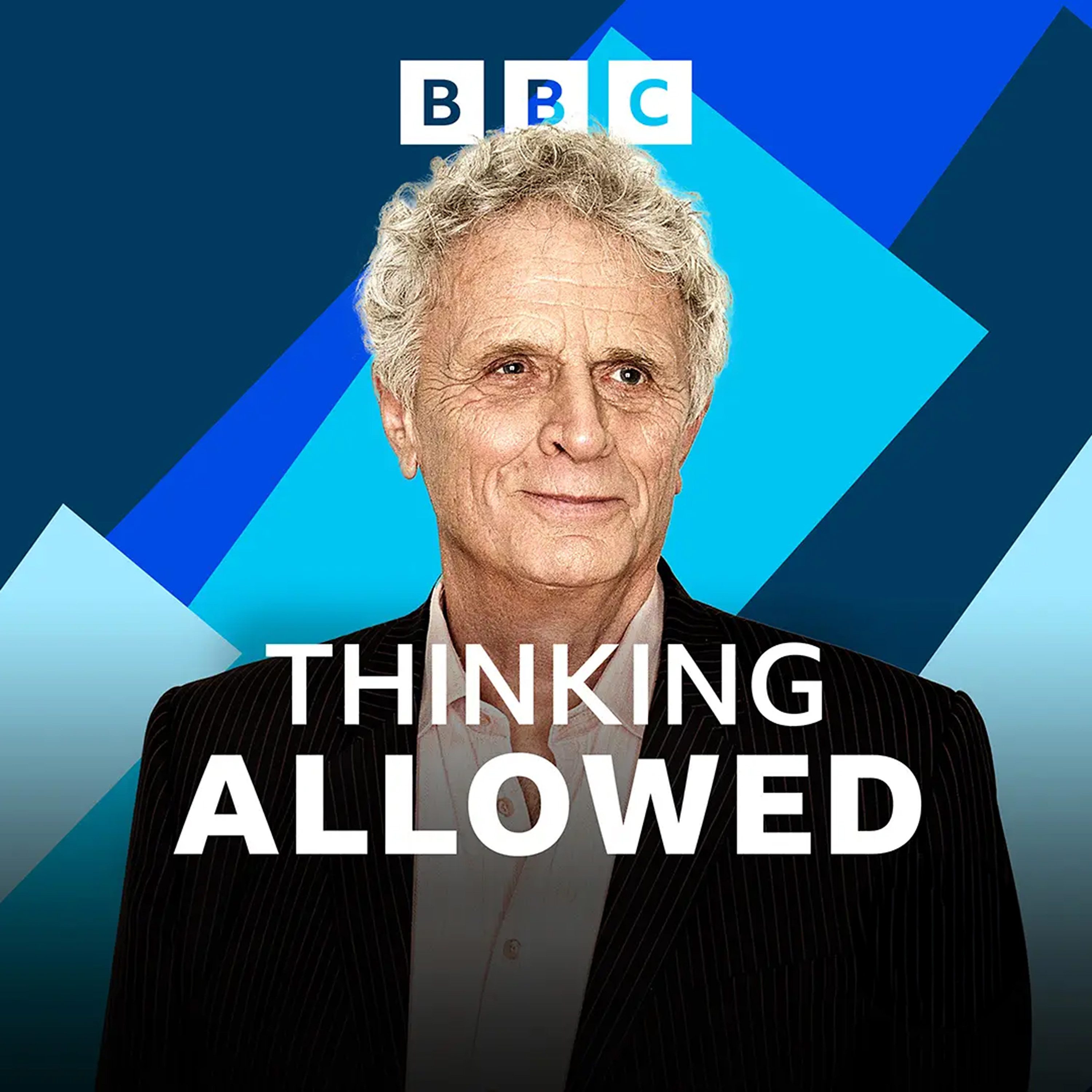

Thinking Allowed
BBC Radio 4
New research on how society works
Episodes
Mentioned books

11 snips
Oct 25, 2023 • 29min
Intersections
Patricia Hill Collins, renowned Black feminist scholar, discusses her study on how violence affects people differently based on their sex, class, sexuality, nationality, and ethnicity. The podcast also explores the abuse faced by female migrant domestic workers in the UK. It delves into topics such as the vulnerabilities of these workers, the social construction of violence, case studies of violence outcomes, and the importance of citizen activism in addressing social injustices.

Oct 18, 2023 • 28min
The Grave - Memorial Benches
This podcast explores the transformation of burial sites over time, including the rise of cremation, green burial, and human composting. It also discusses the growing demand for memorial benches in meaningful places, serving as 'living obituaries' for seemingly undistinguished lives. The podcast highlights social inequalities in access to memorial benches and explores their role in secular mourning and celebrating lives.

Oct 11, 2023 • 28min
Pets
Guest Jane Hamlett, a Senior Lecturer in Modern British History, discusses the changing role of pets in British society. Also, Jessica Amberson explores the significance of dog walking and its impact on the identity of a 'dog person'. The podcast explores the emotional connection between humans and dogs, the cultural factors influencing pet ownership, and the role of pets in constructing family and national identity.

Oct 4, 2023 • 29min
Sugar
Discover the fascinating global history of sugar and its human costs, from luxury good to transatlantic slavery and the obesity pandemic. Also, learn about the bittersweet nature of sugar consumption and its morally ambivalent presence in family life.

7 snips
Sep 27, 2023 • 28min
Woke
Laurie Taylor talks to philosopher Susan Neiman about the concept of 'woke' and its attack on progressive values. Huw Davies discusses the British 'war on woke' as an ideological campaign mobilizing reactionary tropes in mainstream British politics.

Sep 20, 2023 • 28min
Guns
Jennifer Carlson, Professor of Sociology, discusses her study of gun sellers in the US. She explores how conservative sellers reacted to a surge in gun buyers, including women and sexual minorities. Andrew Nahum, historian, joins to discuss the impact of guns on progress throughout history. They examine the paradox of gun ownership and the satisfaction of creating weapons.

7 snips
Sep 13, 2023 • 29min
Water Ways
An exploration of human relationships with water through the lens of anthropology and politics. From ancient beliefs in water serpent deities to the current environmental crisis, the podcast discusses the need to turn back the tide of ecological disaster. It also highlights water poverty in western societies and the importance of indigenous protests and artistic depictions. The United Nations' approach to water issues and the concept of developing a kinship-based relationship with rivers are also discussed.

Sep 6, 2023 • 28min
Boxing and Kickboxing
Exploring the potential of boxing and kickboxing to transform lives, this podcast discusses the benefits and limitations of these sports. It examines the role of boxing in tackling social issues and the identity formation in a kickboxing gym. The podcast also delves into the hypermasculinity and vulnerability present in boxing and kickboxing, as well as the impact of gentrification on gyms. Additionally, it explores the potential of these sports to bring about positive change among vulnerable groups and marginalized individuals.

Aug 30, 2023 • 28min
The Petite Bourgeoisie
Daniel Evans, Research Assistant at Cardiff University, discusses the rise of the lower middle class, now a significant political force. Nicola Bishop, Senior Teaching Fellow at Loughborough University, explores the cultural impact of white-collar workers in British popular culture. Topics include the evolution of the petty bourgeoisie, portrayal in Victorian sitcoms, emasculation in media, and cultural values.

Jun 7, 2023 • 28min
High Finance
HIGH FINANCE: Laurie Taylor talks to Brett Christophers, Professor in the Department of Human Geography at Uppsala University, Sweden, whose latest book argues that banks have taken a backseat since the global financial crisis . Today, our new economic masters are asset managers who don’t just own financial assets, they also own the roads we drive on; the pipes that supply our drinking water; the farmland that provides our food; energy systems for electricity and heat; hospitals, schools, and even the homes in which many of us live—these all now swell asset managers’ bulging investment portfolios. They’re joined by Megan Tobias Neely, Assistant Professor in the Department of Organization at Copenhagen Business School and author of a study which takes us behind the designer suits and helicopter commutes to provide a glimpse of the lives and times of the mainly white men who dominate the hedge fund industry where about 10,000 firms manage $4 trillion in assets and the average earnings are $1.4 mm a year - which can rise to several billion. Producer: Jayne Egerton


